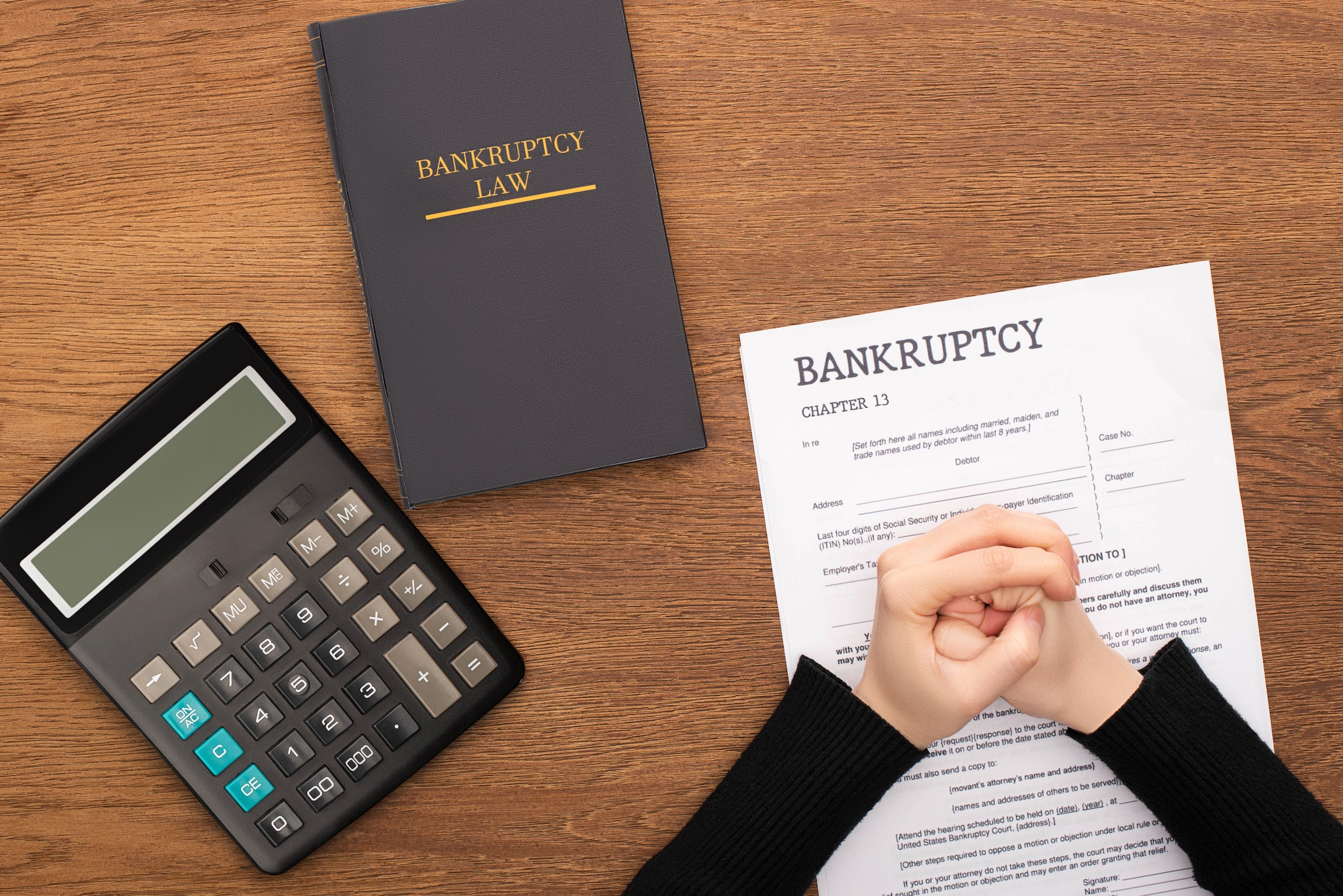
You’re sinking in debt and bankruptcy seems like your only lifeline. But should you file for Chapter 7 or Chapter 13? It’s a puzzle that needs careful consideration.
You’ll need to weigh pros, cons, and personal circumstances. We’re here to help you navigate this complex decision, offering detailed insight into both options.
Let’s unravel this financial Gordian knot together and discover the best path forward for you.
Key Takeaways
- Chapter 7 is known as ‘liquidation bankruptcy’ while Chapter 13 is referred to as ‘reorganization bankruptcy’.
- Chapter 7 discharges most types of debt, while Chapter 13 creates a repayment plan based on income and living costs.
- Chapter 7 requires passing a means test, while Chapter 13 does not have a means test.
- Chapter 7 is suitable for those with little-to-no disposable income, while Chapter 13 is suitable for those with some disposable income.
Understanding the Basics of Chapter 7 and Chapter 13
Let’s delve into the basics of Chapter 7 and Chapter 13 to figure out which one’s right for you. Understanding these forms of bankruptcy starts with knowing your bankruptcy eligibility.
Chapter 7, often referred to as ‘liquidation bankruptcy,’ allows you to discharge most types of debt, meaning they’re completely erased and creditors can’t collect on them any longer. It’s generally suited for those who have little-to-no disposable income. Before qualifying for this chapter, you’ll need to pass a ‘means test,’ proving that your income is below your state’s median.
On the other hand, Chapter 13 or ‘reorganization bankruptcy’ might be more suitable if you’ve got some disposable income left after paying essential expenses each month. Instead of wiping out debts, it creates a three- to five-year repayment plan based on your income, living costs, and unsecured debt amount.
Now let’s talk about debt discharge in both chapters. In Chapter 7, unsecured debts like credit card balances or medical bills are typically discharged entirely while certain types of tax obligations or student loans usually aren’t eligible for discharge. Meanwhile, in Chapter 13 bankruptcy, some portion of your unsecured debts will likely be discharged at the end of your repayment plan period.
In conclusion: If you’re struggling with insurmountable debt and looking for relief – understanding the basics between Chapter 7 and Chapter 13 can help guide you on what could work best given your financial situation.
Factors to Consider When Choosing Between Chapter 7 and Chapter 13
It’s crucial to weigh various factors when deciding between these two options, particularly the Debt Discharge Differences and Eligibility Requirements. But don’t worry, you’re not alone in this. Let’s dive into a quick comparison.
Here is an easy-to-understand table comparing Chapter 7 and Chapter 13:
| Factors | Chapter 7 | Chapter 13 |
|---|---|---|
| Debt Discharge Differences | Most unsecured debts are discharged. Exceptions include student loans, alimony, child support etc. | You repay some or all of your debts over a period of three to five years. At the end of that time, many remaining debts may be discharged. |
| Eligibility Requirements | Must pass a means test (your income should be below the state median). Some types of debt (like student loans) are typically not discharged. | Regular income needed to ensure completion of repayment plan. No maximum limit on amount of debt. |
| Process Time | Four to six months for discharge after filing. | Three to five years to complete repayment plan. |
| Asset Protection | Non-exempt assets can be sold by trustee to repay creditors. | You keep most if not all your property but must pay unsecured creditors an amount equal to value of non-exempt assets. |
| Effect on Credit Score | Negative impact but begins improving sooner. | Long-term negative impact due to longer process time. |
The Pros and Cons of Filing for Chapter 7
Diving into the perks and drawbacks of filing for bankruptcy under this particular code, you’ll find that there are both benefits and potential downsides to consider. Starting with the positives, Chapter 7’s most notable advantage is its ability for debt discharge. This process eliminates certain debts, freeing you from the obligation of paying them back.
Eligibility requirements are another aspect to consider. For Chapter 7, these are less stringent than other bankruptcy codes. Unlike Chapter 13, you don’t need a regular income to file under Chapter 7. Additionally, the process is usually quick – often completed in three to six months – allowing you to start rebuilding your financial life sooner.
However, it’s not all roses with Chapter 7. A significant downside is its impact on your credit score; a bankruptcy filing can stay on your report for up to ten years. This can make future lending more difficult or expensive.
Also, while debt discharge seems appealing initially, remember it doesn’t apply universally; some debts like student loans typically aren’t discharged in Chapter 7 cases.
Another important factor is property loss risk: non-exempt assets may be sold off by the trustee appointed by the court to pay off creditors.
Lastly, if your income is above a certain threshold (as defined by means testing), you might not even qualify for this type of bankruptcy.
In short: weigh these pros and cons carefully before deciding whether Chapter 7 meets your needs best – understanding both sides will help guide an informed decision.
The Advantages and Drawbacks of Filing for Chapter 13
Switching gears, let’s explore the ups and downs of taking a different bankruptcy route – one with its own set of benefits and potential drawbacks. Chapter 13 bankruptcy, unlike Chapter 7, allows you to develop a repayment plan to pay off your debts over time. However, it’s not for everyone.
- Eligibility Criteria: For you to qualify for Chapter 13 bankruptcy, your debt must be within certain limits. Unsecured debt (like credit card bills) can’t exceed $394,725 and secured debt (like mortgages and auto loans) can’t be more than $1,184,200.
- Repayment Plan: You’ll develop a plan to repay all or part of your debts within three to five years. This payment structure is based on your income and the amount you owe. It’s important that these payments are manageable; otherwise, failure could lead back into financial distress.
- Impact on Credit: Although filing for any type of bankruptcy will impact your credit score negatively in the short term, because Chapter 13 involves repaying some or all of what you owe rather than wiping out most debts as in Chapter 7, it may be viewed more favorably by future creditors.
Bear in mind that while this path offers an opportunity to keep valuable assets like your house or car that might otherwise be lost under other forms of bankruptcy (a definite advantage), it also requires discipline and commitment over several years – no small feat! Ultimately though, it’s up to you to weigh these pros and cons against each other and decide which route best suits your situation.
How to Determine the Best Option: Chapter 7 or Chapter 13?
Determining the best option between these two types of bankruptcy can be quite a conundrum, but don’t worry – we’re here to guide you through this decision-making process. It’s not a one-size-fits-all choice; it depends on your unique circumstances and financial goals.
The first factor to consider is the Eligibility Criteria. Chapter 7 isn’t for everyone; if your income is too high, you may not qualify. You’ll have to pass a ‘means test’ that evaluates your financial resources. On the other hand, Chapter 13 doesn’t have an income requirement but does require that your debts fall within certain limits.
Next, think about Debt Discharge potential. Chapter 7 bankruptcy could wipe out most of your unsecured debt like credit card or medical bills, offering you a fresh start in just a few months. However, it might also mean liquidating some assets to repay creditors. Conversely, Chapter 13 allows you to keep all your property but requires a three-to-five-year repayment plan before any remaining debt can be discharged.
Consider too how each type will affect your credit score and future borrowing ability; while both will impact negatively at first, with responsible financial behavior post-bankruptcy you could begin rebuilding credit sooner than you might expect.
Finally, reflect on what’s most important: keeping valuable assets or getting rid of overwhelming debt? If it’s the former go for chapter 13; if it’s the latter choose chapter 7.
Remember: There’s no shame in filing for bankruptcy – sometimes life throws curveballs our way and we need help getting back on track.
Frequently Asked Questions
What Are Some Alternatives to Filing for Chapter 7 or Chapter 13 Bankruptcy?
If you’re seeking alternatives to filing for Chapter 7 or Chapter 13 bankruptcy, consider Debt Consolidation Options. You’ll combine all your debts into one manageable payment.
Another alternative is Credit Counseling Services. They’ll work with you to develop a personalized plan to resolve your financial issues.
It’s important that you explore all options and choose what’s right for your unique situation.
How Will Filing for Bankruptcy Affect My Credit Score in the Long Term?
Filing for bankruptcy will significantly impact your credit score, but it’s not the end. While initially damaging, you can rebuild your credit over time.
You’ll have to show consistent debt management and make on-time payments. It could take several years, but steady financial habits will gradually improve your score.
Can I Switch From One Type of Bankruptcy to the Other Once the Process Has Started?
Yes, you can switch from one type of bankruptcy to another after the process has begun. This is called a bankruptcy conversion. However, there are process implications to consider.
It’s not as simple as changing your mind; you’ll need court approval and there could be additional costs involved. Also, certain eligibility requirements must be met to convert your case.
It’s crucial to consult with a knowledgeable attorney to understand all potential impacts before making this decision.
What Is the Role of a Bankruptcy Trustee in Chapter 7 and Chapter 13 Cases?
In both Chapter 7 and Chapter 13 bankruptcy cases, the trustee’s role is crucial. They’re like a conductor, guiding your financial orchestra through the proceedings.
Trustee responsibilities include reviewing your assets, overseeing payments to creditors in a Chapter 13 plan, and liquidating non-exempt property in a Chapter 7 case.
They ensure everything runs smoothly for you and your creditors during these complex legal situations. Understanding their role can help you navigate what might otherwise be an overwhelming process.
Are There Any Financial Education or Counseling Requirements When Filing for Bankruptcy?
Yes, there are financial education and counseling requirements when filing for bankruptcy. You’ll have to complete a credit counseling course before filing and a debtor education course after filing.
These courses offer counseling benefits like helping you understand your financial situation better. The debt education helps you learn how to manage your finances more effectively in the future, preventing another bankruptcy situation.
Conclusion
In the end, it’s your unique situation that will determine whether Chapter 7 or Chapter 13 is right for you.
It’s true what they say, ‘knowledge is power.’ So take time to understand your options, weigh the pros and cons, and make an informed decision.
Remember, this choice can significantly affect your financial future – so choose wisely!




